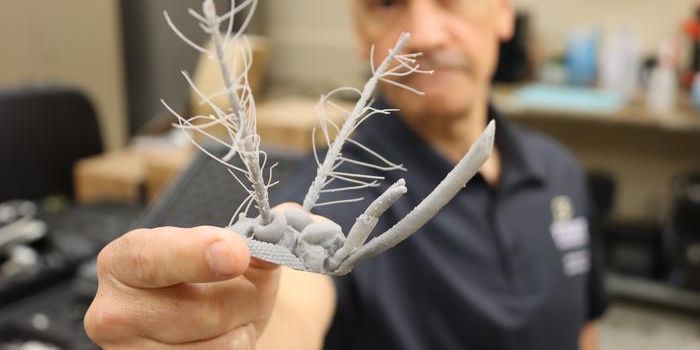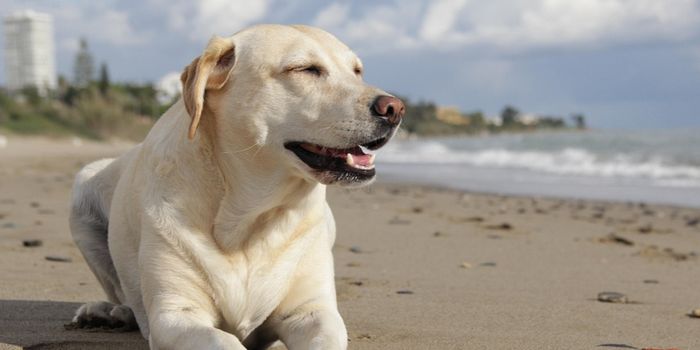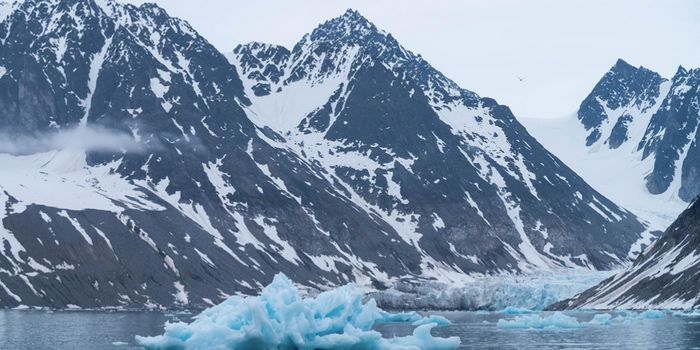Avoid Releasing Domestic Goldfish Into Nature's Waterways
Goldfish are among some of the world’s most popular species of pet fish, but despite popular belief, it’s generally a good idea to keep them as pets right up until the day they finally kick the bucket.
Many people set their goldfish free in the wild after they become too large for their own domestic pet enclosures at home, but experts are advising against doing so, as goldfish are considered an invasive species and can have a negative impact on the natural ecosystem where they’re dumped.
Image Credit: Sara Thompson Michigan DNR via Popular Science
The reason for their invasiveness lies in their ability to easily adapt to almost any environment. By being set free in a local pond or stream, that goldfish essentially takes it over. It will grow incredibly large and multiply very quickly, which has implications for other fish species sharing the same ecosystem.
Related: Star the goldfish received a surgical procedure to remove an eye tumor
In a piece we shared in August of 2016, we discussed the circumstances surrounding goldfish dumping and how it has a negative impact on the ecosystem where they’re dumped. Goldfish, on the other hand, have no problem adapting and overwhelming the ecosystem, growing to weigh almost 2kg and the size of a football.
Their size probably has something to do with the fact that they’ll eat almost anything and they’ll eat a lot of it, including the eggs of other fish, which reduces the reproduction rate of other species in the region.
As horrible as that sounds, that’s not the only problem with setting goldfish free in the wild, the accompanying study published in the journal Ecology of Freshwater Fish at the time also revealed that they behave a lot like carp, stirring up the sediment at the bottom of the body of water and contaminating the surrounding water, which makes it harder for other species to thrive.
Michigan’s Department of Natural Resources (DNR) was recently tasked with handling a goldfish situation in numerous natural water bodies in the state. According to reports, DNR had to remove hundreds of pounds of goldfish from those bodies.
“It means they’re taking up all of the resources of fish that should be there,” says Sara Thompson, Lake Erie Unit Manager for the Michigan DNR fisheries division. “Only one or two native fish were found in that stretch.”
Related: Fish frozen solid by nature in the midst of eating another fish
Goldfish weren’t native to either ecosystem, so it’s believed that a few (or many) pet owners may have intentionally dumped their ex-pets into them to say goodbye. After that, nature took its course and they replicated several times, grew very large, and stirred up ruckus.
Reports say that up to 8,000 goldfish weighing as much as 450 pounds in total were removed from these water sources.
Other states across the United States are facing similar problems and are considering ways of dealing with them, including Colorado, which recently dealt with a similar scenario:
Obviously, stricter laws enforcing how goldfish are disposed of could help, but finding ways to assist the current problem of all the goldfish being where they don’t belong is also required to help save other species of fish that are now forced to co-exist with an invasive species.
Source: Popular Science









